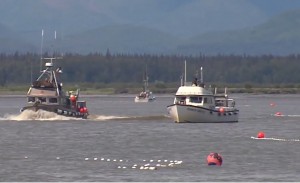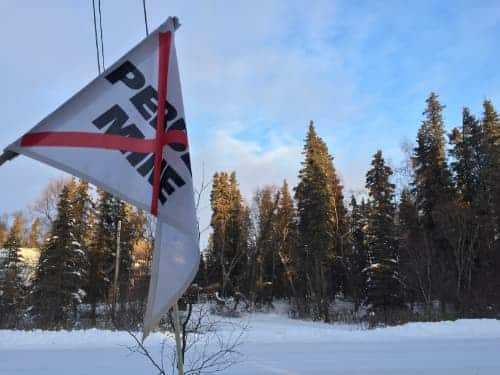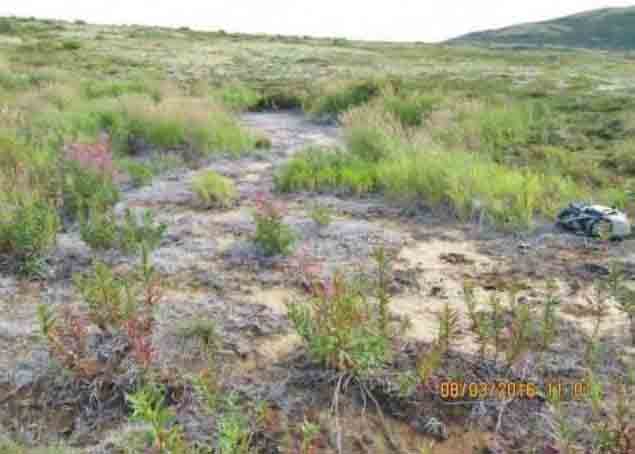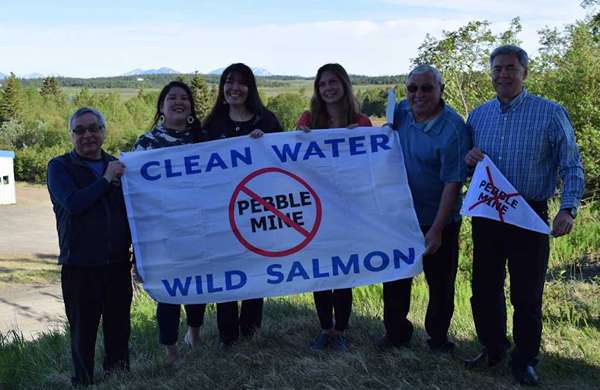In a landmark decision, EPA Finalizes Clean Water Act protections for the world’s greatest salmon fishery responding to decades of Tribal and fishing industrys’ requests

(Dillingham, Alaska) — Tuesday, EPA announced the issuance of a Final Determination under the Clean Water Act to protect Bristol Bay, the most productive wild salmon ecosystem in the world. This action finally puts a stop to development of the Pebble Mine, protecting waters essential to sustaining Southwest Alaska’s salmon resources from disposal of dredged or fill materials associated with developing the Pebble deposit.
Releasing the Final Determination is the last step of the 404(c) process for Bristol Bay. Under the Clean Water Act, these protections are now law and effectively prohibit the development of the Pebble Mine and future proposals to develop a mine in the Pebble Deposit. Bristol Bay’s Tribes, Commercial and sport fishermen, and Alaskans are celebrating this EPA’s landmark decision to protect Bristol Bay and safeguard the Nation’s greatest wild salmon resources from the threat of Pebble Mine.
“For the first time in two decades, our fishermen will head out on the water this fishing season without the existential threat of Pebble Mine looming just up-river,” said Katherine Carscallen, Director of Commercial Fishermen for Bristol Bay. “Thousands of small fishing businesses, and industry members are thanking the Biden administration and the Environmental Protection Agency for finalizing Clean Water Act protections which recognize the importance of Bristol Bay, its record-breaking salmon runs, and the irreplaceable sustainable jobs it supports.”
Clean Water Act protections were first requested thirteen years ago, and commercial fishermen have worked to seek permanent and durable protections for the habitat which sustains Bristol Bay’s record-breaking fishery. These protections will ensure that Bristol Bay and the 15,000 jobs, $2.2 billion in economic activity, and a generational fishery it supports can continue to thrive for years to come.
“We are glad to see the Environmental Protection Agency finally protect Bristol Bay from the threat of Pebble Mine,” said Andy Wink, Executive Director of the Bristol Bay Seafood Development. “Due to the hard work and dedication of the Biden administration and Environmental Protection Agency, our fishermen can now do their jobs without worrying about Pebble Mine destroying Bristol Bay’s iconic salmon runs. This decision is a huge conservation win that will ensure we can continue to deliver tens of millions of wild sockeye salmon to the market every year, feeding families from coast to coast.”
Due to the adverse effects the Pebble Mine would have on salmon fisheries in the area, the EPA’s Final Determination prohibited and restricted the use of certain waters in the South Fork Koktuli, North Fork Koktuli, and Upper Talarik Creek Watersheds as a disposal site for the discharge of dredged or fill material associated with mining at the Pebble deposit.
“I am extremely thankful to see the Environmental Protection Agency finally protect Bristol Bay, its people, salmon, and watershed from the Pebble Mine,” said Michael “MJ” Jackson, President of the Bristol Bay Regional Seafood Development Association and Advisor for the Commercial Fishermen for Bristol Bay. “As someone who has been a fisherman in Bristol Bay for over thirty years, I have seen firsthand how special this place is. I know for a fact that this news is welcome by all the Alaskans, Tribes, fishermen, conservation groups, and everyone else who has demanded the EPA veto Pebble for decades. After last summer’s record-breaking return of 80 million salmon, stopping Pebble Mine was the only sensible option for the EPA and Biden administration”
The United Tribes of Bristol Bay, Bristol Bay Economic Development Corporation, Bristol Bay Native Association, Bristol Bay Native Corporation, Commercial Fishermen for Bristol Bay, Bristol Bay Regional Seafood Development Association, local Tribes and municipalities, village corporations, dozens of NGOs and nonprofits, sportsmen, businesses, chefs, and numerous others are united in support of the EPA’s decision to protect Bristol Bay. Going forward, groups dedicated to this fight will continue working to protect the region from any and all future threats.
### [content id=”79272″]







